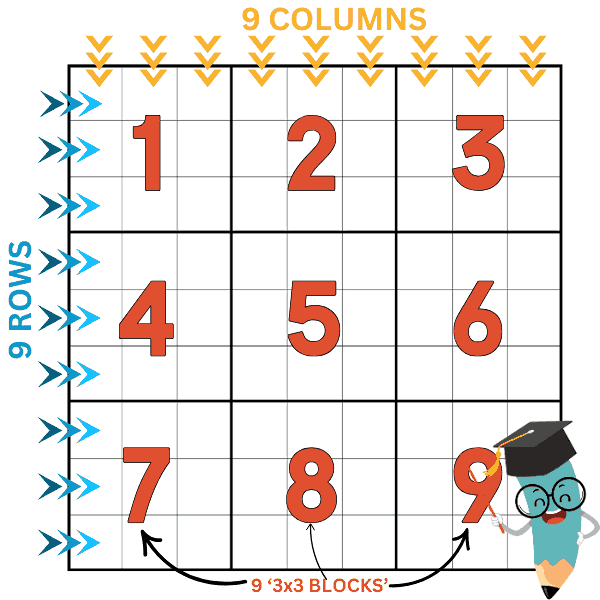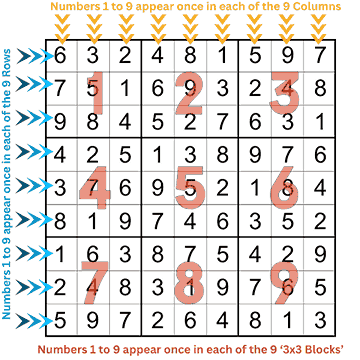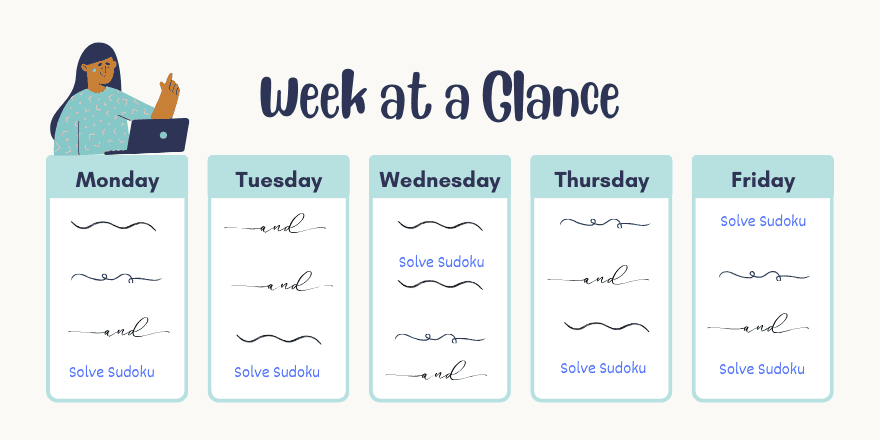Table of Contents
- Introduction
- What is Sudoku? A Quick Overview
- The Basics of Sudoku
- Why People Love Sudoku
- How Sudoku Enhances Critical Thinking
- Encourages Logical Reasoning
- Improves Problem-Solving Skills
- Strengthens Focus and Patience
- Enhances Memory and Cognitive Agility
- Scientific Backing: The Cognitive Benefits of Sudoku
- Studies Linking Sudoku to Brain Health
- Real-Life Applications of Sudoku’s Benefits
- How to Use Sudoku to Sharpen Your Mind
- Start with the Right Difficulty Level
- Challenge Yourself with Advanced Strategies
- Make Sudoku a Daily Habit
- Conclusion
- Frequently Asked Questions
1. Introduction
Have you ever been tangled in a web of daily decisions and wished for a mental boost? Sudoku might be the answer. This number puzzle isn’t merely a pastime; it’s a powerful tool to enhance your critical thinking skills.
2. What is Sudoku? A Quick Overview
2.1 The Basics of Sudoku
Sudoku is a logic-based puzzle where you fill a 9×9 grid so that each row, column, and 3×3 subgrid contains all digits from 1 to 9. Sounds simple? Think again. This game challenges your brain to spot patterns and think ahead.


2.2 Why People Love Sudoku
Why has Sudoku become a global sensation? It’s accessible, requires no special equipment, and offers a satisfying mental workout. Plus, completing a challenging puzzle brings a sense of accomplishment that’s hard to beat.
3. How Sudoku Enhances Critical Thinking
3.1 Encourages Logical Reasoning
Each move in Sudoku demands careful thought. You can’t guess; you must deduce the correct number for each cell. This process sharpens your ability to think logically and systematically.
3.2 Improves Problem-Solving Skills
Sudoku presents a problem: incomplete information that you must complete correctly. Tackling these puzzles teaches you to approach problems methodically, breaking them down into manageable parts.
3.3 Strengthens Focus and Patience
In our fast-paced world, patience is a rare virtue. Sudoku requires you to slow down, concentrate, and persist through challenges, enhancing your focus and patience over time.
3.4 Enhances Memory and Cognitive Agility
Remembering numbers, their positions, and potential fits exercise your working memory. Regular play keeps your mind agile, improving both recall and flexibility in thinking.
4. Scientific Backing: The Cognitive Benefits of Sudoku
4.1 Studies Linking Sudoku to Brain Health
Research indicates that engaging in puzzles like Sudoku can delay cognitive decline and enhance mental sharpness. While it’s not a cure-all, it’s a fun way to keep your brain active.
Learn more about the research here.
4.2 Real-Life Applications of Sudoku’s Benefits
The skills honed through Sudoku—logical reasoning, problem-solving, and patience—are invaluable in daily life. Whether at work or home, these enhanced abilities can lead to better decisions and solutions.
5. How to Use Sudoku to Sharpen Your Mind
5.1 Start with the Right Difficulty Level
Jumping into expert-level puzzles might be discouraging. Begin with easier puzzles to build confidence and gradually tackle more challenging ones as your skills improve.
Download free Sudoku puzzle books here.
5.2 Challenge Yourself with Advanced Strategies
Once comfortable, explore advanced techniques like “naked pairs” or “X-Wing.” These strategies add complexity and further stimulate your brain.
5.3 Make Sudoku a Daily Habit
Consistency is key. Incorporate Sudoku into your daily routine, perhaps with your morning coffee or during a commute. Regular practice amplifies the cognitive benefits.

6. Conclusion
Sudoku is more than a simple puzzle; it’s a versatile tool for enhancing critical thinking. By engaging regularly, you can boost your mental agility, problem-solving skills, and overall brain health. So, why not give it a try today?
7. Frequently Asked Questions
Q1: Can playing Sudoku prevent dementia?
While Sudoku keeps the brain active, there’s no conclusive evidence that it prevents dementia. However, it can contribute to overall cognitive health.
Q2: How long should I play Sudoku each day to see the benefits?
Even a few minutes daily can be beneficial. The key is regular engagement to keep your mind sharp.
Q3: Is Sudoku suitable for all ages?
Absolutely! Sudoku puzzles range in difficulty, making them accessible and challenging for both young and old. Here are Sudoku puzzles for kids and seniors.
Q4: Do I need to be good at math to play Sudoku?
Not at all. Sudoku relies on logic and pattern recognition, not mathematical calculations.
Q5: Where can I find Sudoku puzzles to play?
Sudoku puzzles are available in newspapers, books, and our online platform. Find one that suits your preference and start playing!
